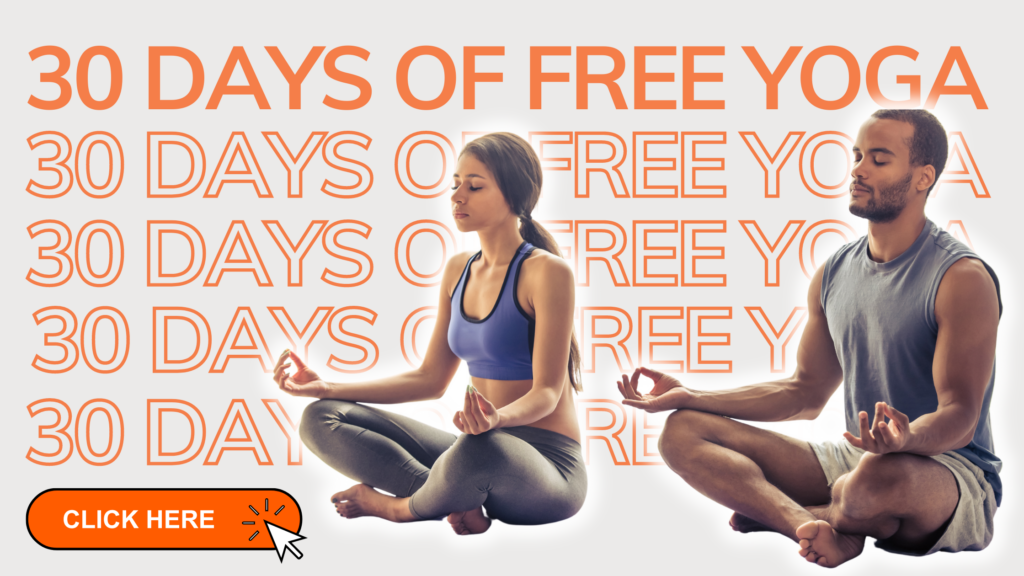
There are many benefits to yoga, but the question is how does it make you feel? More importantly, what do these emotions mean, and why should we care?
Yoga is a practice that has been around for centuries. It has both physical and mental benefits, but there are also some things that you feel after your yoga session. These are the “6 Things You Feel After Yoga, According to Science.” Read more in detail here: 5 benefits of yoga.
If you’ve ever attended a yoga class, you’re surely aware that merely moving your body and breathing may trigger a cascade of feelings. From relaxation to delight, and even worry, there is a wide range of emotions.
Are you curious as to what’s going on and why yoga makes you feel happier/higher/nauseous/[insert your choice here]?
According to research, these are the top 6 things you could experience during or after your yoga session, and why you’re feeling that way.
a burst of energy and vigilance
You may feel more active and alert throughout the day after starting to practice yoga. Doesn’t it seem counterintuitive? It may seem counterintuitive, but frequent physical exercise and mobility can help you feel less weary in the long run.
The reason for this is that yoga, like any other kind of exercise, promotes blood circulation. The stronger your blood circulation, the more oxygen you receive, which means your cells get more nutrition and your organs can perform better and more effectively.
Furthermore, the physical postures of yoga, combined with a stress-relieving breathing practice, may help you sleep better. When you wake up after a good night’s sleep, you’ll feel more relaxed, rejuvenated, and energized.
A Deep Sensation Of Peace
Taking a relaxing bath, sipping tea, listening to calming music – anything that helps you breathe deeply and relax can calm you down by switching your nervous system into parasympathetic or “rest and digest” mode.
Yoga, according to research, has the same calming impact on your brain and nerves as the activities listed above, allowing your body to transition from an aroused state induced by sympathetic activity to stillness and relaxation.
The myriad benefits of yoga may all be linked back to one mechanism: the vagus nerve, which links the brain (and hence the mind) to the body.
The vagus nerve is the principal component of the parasympathetic nervous system, which regulates heart rate and promotes tranquility and relaxation as well as feed-and-breath and rest-and-digest activities. It connects the brain stem to the heart, lungs, digestive system, and kidneys and goes from the brain to our belly. Our loving behavior is also regulated by the vagus nerve, which promotes a sense of calm, relaxation, and security.
The vagus nerve and our emotional state have a reciprocal relationship: feeling calm, relaxed, and friendly activates the vagus nerve.
Yoga affects your body, strengthening your vagus nerve (yes, the vagus nerve can be exercised like a muscle! ), inducing relaxation, and relaxing your emotional nervous system to help you start a positive upward spiral of peace.
Joy and happiness levels are higher.
Yoga has more benefits than just toning and strengthening your vagus nerve. Regular yoga practice may also alter brain function by raising GABA levels, a neurotransmitter involved in communication between the brain and nervous system.
GABA is particularly critical for reducing the activity of fear and anxiety-related neurons. Schizophrenia, sadness, anxiety, and sleep difficulties have all been related to low GABA levels. GABA comes into play when your brain is overwhelmed by dread or worry.
Regular yoga asana practitioners had greater GABA levels than non-yogis, according to studies. And more GABA indicates a better mood, greater life satisfaction, and less anxiety overall. Yoga is also more helpful in increasing GABA levels than merely walking or exercising.
Yoga’s euphoria and high
Congratulations if you leave a yoga session buzzing with energy, happiness, and ecstasy! You’re on a well-known “yoga high.”
After-class feelings such as yoga highs or buzzes are typical. They make students feel their best throughout the day, according to students. Calm yet energised, calm but powerful, invigorated by subtle pulsations that accompany them throughout the day. The yoga high is almost difficult to describe.
Chemicals and hormones are mostly responsible for why you feel so fantastic after a yoga lesson and get addicted to returning to your yoga mat.
Yoga has been demonstrated to influence the action of our hormones, particularly dopamine and serotonin. Serotonin and dopamine are sometimes referred to as “happy hormones.” They assist us in sleeping better, digesting meals more quickly, and feeling as though nothing can bring you down.
Yoga also lowers cortisol levels, making you feel less worried, nervous, and calm.
Feeling shaky and weak
Feeling wobbly and weak after a yoga lesson might be due to a variety of physiological and mental factors. Here are a few reasons why you could be feeling strangely off during or after your yoga class:
- Muscle exhaustion. Yoga is often thought to be a low-impact exercise. You may overexert yourself and feel post-workout muscular tiredness if you’re new to the discipline or if you’re working through an advanced sequence. Tremors or shakiness may also be caused by muscle weariness.
- Taking a lesson with lengthy holds. If you’re taking a long holds class, you could start to feel unsteady after maintaining a position for an extended period of time. Holding Warrior II stance, for example, may cause your front leg and arms to tremble, while Plank may cause your abs to tremble. This trembling is perfectly natural and merely indicates that your muscles are working quite hard!
- Dehydration. Dehydration may cause an imbalance in your body’s electrolyte levels, which are minerals that transfer electrical impulses that signal your muscles to contract. Your muscles will not fire correctly if you don’t have enough electrolytes, causing tremors.
- The alignment isn’t ideal. Yoga, like other kinds of exercise, requires precise technique, particularly in advanced positions. Some positions, such as Headstand and Shoulderstand, may put pressure on the muscles around your neck and head, making your head feel strange or heavy and perhaps producing a headache or stress.
- Breathing is shallow. During yoga practice, shallow breathing may also produce dizziness and shakiness. When you’re attempting to concentrate on a posture or exercise, you may unconsciously hold your breath. Shallow breathing makes it harder for oxygen to reach your muscles and brain, which may lead to muscular tension and headaches.
You may also find emotional release via yoga on a psychological level. Many individuals claim that during or after an emotionally/physically challenging yoga session, they found themselves smiling or sobbing for no apparent reason. It might be due to yoga’s capacity to develop mindfulness and boost self-awareness. Yoga does not produce these emotions; rather, it aids in the release of sentiments that have been suppressed or hidden for a long period.
After a Yoga Class, I’m Feeling Nauseous
Is it possible to get ill after doing yoga? Certainly.
Post-yoga nausea may be caused by a variety of causes, including eating a meal soon before class and dealing with new emotions and stress.
Nausea may also be caused by blood being rerouted from the GI tract and stomach to our working muscles, which slows digestion and makes us feel uneasy. Large meals should be avoided at least one and a half to two hours before a yoga practice. If you do need to eat anything before a yoga session, make sure it’s modest and nutrient-dense.
Remember to drink plenty of water before and throughout your yoga session, particularly if you attend hot yoga courses.
If you start to feel sick throughout the session, sit or lie down and reconnect with your breath by taking long, complete inhales and exhales.
The “unexpected benefits of yoga” is a topic that has been discussed in the past. In this blog, we will discuss 6 things you feel after doing yoga according to science.
Frequently Asked Questions
What should you feel after yoga?
A: You should feel relieved and relaxed. With this practice, you will be able to relieve stress which has built up over the course of your day.
What are the 6 benefits of yoga?
A: There are a number of benefits of yoga. Some of the most popular include balance, stress relief, increase in energy levels and more.
What are the scientifically proven benefits of yoga?
A: Yoga has been proven to help with stress, depression, and anxiety. It is also helpful in improving your mental health as well as physical health.
Related Tags
- physical benefits of yoga
- what are the benefits of yoga
- 10 benefits of yoga
- 7 benefits of yoga
- 20 benefits of yoga













